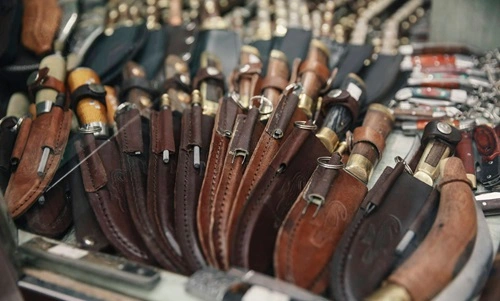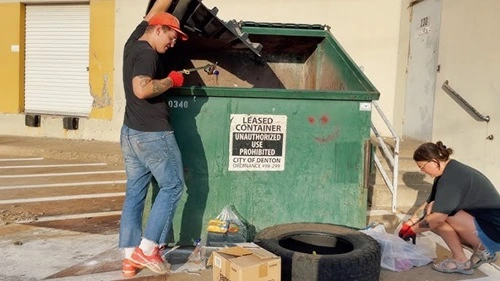No, it is not inherently illegal to carry a knife in Florida, but the type of knife, how it is carried, and the intent behind carrying it can determine its legality. Florida’s knife laws are relatively lenient, but there are specific restrictions and circumstances that may make carrying a knife unlawful.
Understanding Florida’s Knife Laws
Florida’s knife laws are governed by Florida Statute § 790.01, which addresses weapons and concealed carry, and Florida Statute § 790.001, which defines weapons and dangerous devices. Here’s an overview of the key aspects:
1. Legal Types of Knives
In Florida, most knives are legal to own and carry, including:
- Pocket Knives: Folding pocket knives are legal and are not considered weapons unless used in a crime.
- Butterfly Knives (Balisongs): Legal to own and carry.
- Hunting Knives: Legal for recreational or utility purposes.
- Machetes and Bowie Knives: Legal as tools or for recreational use, such as camping or hunting.
2. Prohibited Knives
Certain knives may fall under restricted categories:
- Ballistic Knives: Illegal to possess, manufacture, or sell under federal and state law. These knives eject blades via a spring mechanism.
- Knives Used with Criminal Intent: Any knife used or carried with the intent to commit a crime becomes illegal.
Carrying Knives in Florida
1. Open Carry
Florida allows the open carry of most knives. If a knife is carried visibly and is not being used to threaten or harm others, it is generally legal. Open carry applies to utility knives, hunting knives, and similar tools used for lawful purposes.
2. Concealed Carry
Concealed carry laws are more restrictive. Florida law prohibits carrying concealed weapons without a valid concealed weapon or firearm license (CWFL). This includes:
- Fixed-blade knives, such as hunting or combat knives.
- Folding knives, depending on their size and use.
Pocket knives are an exception. Florida law explicitly states that ordinary pocket knives are not considered weapons and can be carried concealed without a permit.
3. Concealed Weapon License (CWFL)
To carry certain knives concealed, such as fixed-blade knives or large folding knives, a CWFL is required. The licensing process involves background checks, fingerprinting, and training in firearm safety, as knives fall under the broader definition of “weapons” in Florida law.
Where Carrying a Knife Is Restricted
Even if a knife is legally carried, there are places where possessing any weapon, including a knife, is prohibited:
- Schools: Carrying any knife on school property is illegal under Florida Statute § 790.115. This includes public and private schools and school-sponsored events.
- Government Buildings: Knives are prohibited in courthouses, government offices, and other restricted areas.
- Airports: Carrying knives in secure areas of airports is prohibited by federal law.
Legal Consequences for Unlawful Knife Carry
Violating Florida’s knife laws can lead to criminal charges, including:
1. Misdemeanors: Carrying a concealed weapon without a permit is a first-degree misdemeanor, punishable by up to one year in jail and fines up to $1,000.
2. Felonies: Using a knife during the commission of a crime can lead to felony charges, with penalties including imprisonment and significant fines.
3. Civil Penalties: Individuals who violate knife laws may also face civil lawsuits if their actions result in harm or damage.
Recent Legal Updates (2023-2024)
1. Expansion of CWFL Protections
Florida’s CWFL laws were updated to clarify that license holders can carry certain knives that are otherwise restricted, including concealed fixed-blade knives, as long as they meet size and use guidelines.
2. Increased Enforcement in Schools
Incidents involving knives on school campuses have led to stricter enforcement of Florida Statute § 790.115. Even small pocket knives can result in severe consequences if brought to school property.
3. Legal Challenges to Knife Restrictions
Advocacy groups have pushed for clearer definitions of “ordinary pocket knives” in Florida law, arguing that vague language leads to inconsistent enforcement.
FAQs About Carrying a Knife in Florida
Q1. Can I carry a pocket knife in Florida without a license?
Ans: Yes, ordinary pocket knives are not considered weapons under Florida law and can be carried concealed without a license.
Q2. Is it legal to carry a knife for self-defense in Florida?
Ans: Yes, knives can be carried for self-defense, but the intent and manner of use are critical. Misuse or unlawful intent can lead to criminal charges.
Q3. Can I carry a knife to school in Florida?
Ans: No, carrying any knife on school property is illegal under Florida law, regardless of the knife’s size or purpose.
Q4. Do I need a concealed weapons permit for a hunting knife?
Ans: Yes, if carried concealed, a hunting knife is considered a weapon, and a CWFL is required.
Q5. Are there size restrictions on knives in Florida?
Ans: Florida law does not explicitly restrict knife sizes but focuses on the type and intent of the knife. Fixed-blade and large knives typically require a CWFL for concealed carry.


